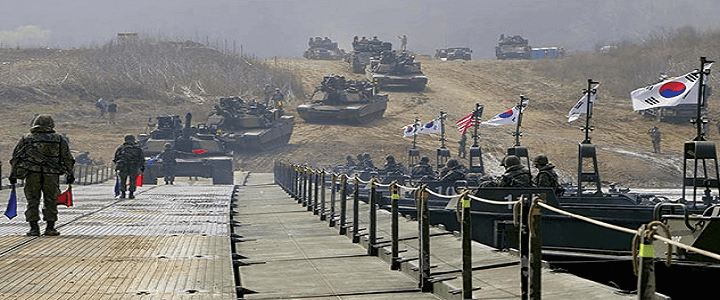A recently released Defense Office of Hearings and Appeals (DOHA) case is now making national news headlines because it appears to show an individual with close relatives in an authoritarian dictatorship applying for a U.S. security clearance.
We’ve frequently covered the DOHA hearing process, a very transparent aspect of the U.S. security clearance process, where cases are sanitized of PII and released to provide further insight into the ins and outs of who is able to obtain access to classified information. Foreign influence and foreign contacts are two of the top causes of clearance denial and revocation. But not all countries are created equally. Prior citizenship or even dual citizenship is not disqualifying, but the government considers level of risk based on country’s relationship to the U.S.
In a recent case heard in January of this year, the judge’s determination noted, “Country X is an authoritarian state. It is hostile to the United States, with an extremely poor human rights record. It supports international terrorism, and it conducts cyberattacks and espionage against the United States.”
All of those factors point to either North Korea, Cuba, or Iran as the only State Department labeled state sponsors of terrorism. Within that list, North Korea fits most of those boxes, and falls most definitively into the ‘hostile to the U.S.’ category.
In this case, the applicant isn’t just from a hostile country. The DOHA case notes she has a close family member (cousin, aunt, uncle, niece, or nephew) who is the dictator of a hostile country. The applicant was married to a U.S. citizen, had been living in the U.S. since she was a child, and had severed ties to relatives in the hostile country.
“There is nothing about her that makes her anything less than a perfect candidate for a security clearance except her family connections to a dictator,” the DOHA case notes.
She has been working for a defense contractor since 2019, and even successfully obtained a Secret security clearance. Her initial application for a Secret security clearance wasn’t discussed in the determination. Because the adjudicative guidelines are the same, foreign influence considerations should have been a factor previously. Perhaps the applicant was able to mitigate country of origin connections due to her name change and her lack of contact, but those same issues under the more scrutinizing lens of a Top Secret security clearance weren’t mitigated.
The case is one example of a phenomenon we’ve discussed before at ClearanceJobs. If you have a complicated background and are able to successfully obtain a clearance, you may be pressing your luck in going for a Secret security clearance. And because the decision on clearance eligibility will trickle down to all levels of access, the applicant will no longer be able to access Secret information either, and may face the prospect of losing her defense contracting job.
“As sensational as this case is, it is fundamentally a foreign influence concern, which is a common issue in security clearance adjudications,” said Sean Bigley, legal correspondent and regular ClearanceJobs contributor. “The judge’s decision utilizes the same Adjudicative Guidelines, employs the same analysis, and considers the same mitigating conditions that thousands of other security clearance applicants encounter across the government every year.” Bigley noted several takeaways for clearance applicants, including the reality that the application of the Foreign Influence guideline is not a commentary on the individual’s loyalty to the U.S.
“This is a good example of both the subjectivity of the Adjudicative Guidelines and the high legal bar applicants must overcome to obtain or retain a clearance: proving that it is “clearly consistent” with the interests of U.S. national security.”
Interestingly enough, the applicant in this case also represented herself. Given the complicated background and the benefit that would have arisen from being able to keep the Secret clearance, it may have seemed prudent to hire a security clearance attorney. It’s not clear if they could have mitigated the significant risk of that dictator uncle – but they may have advised on a path that could have kept the individual’s Secret eligibility.




